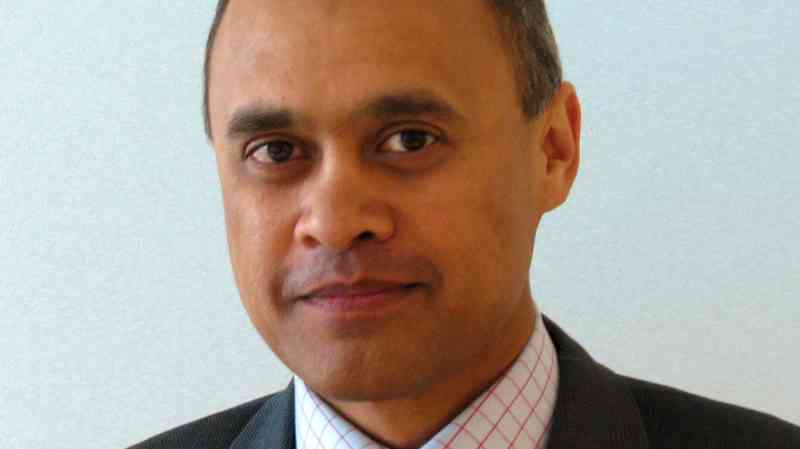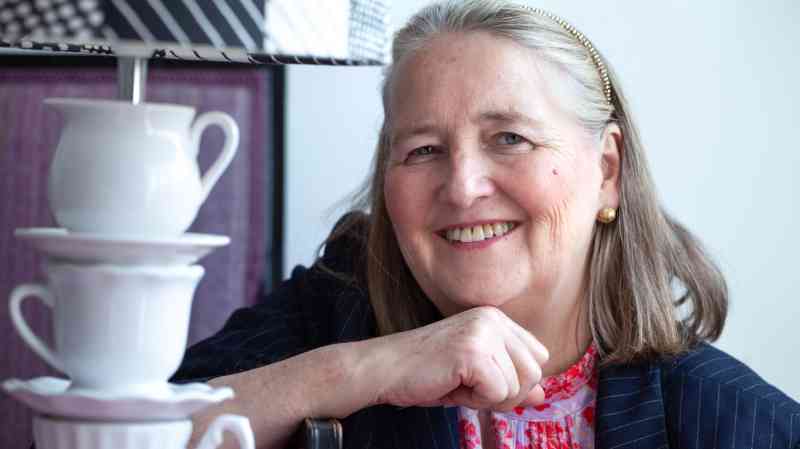How to get a £1.5m pension pot: the most generous places to work
You could be £1 million better off at retirement if you pick the right company to work for, a Money investigation has shown. The Sunday Times contacted every firm in the FTSE 100, the index of the biggest companies listed on the UK stock market, and compared the pension schemes for UK-based staff.
While under auto-enrolment companies are legally obliged to pay only the equivalent of 3 per cent of an employee’s salary into their pension pot (on top of 5 per cent from the employee), our investigation found that some firms contribute as much as 25 per cent. Companies including the consumer goods company Unilever and the oil giants Shell and BP are the most generous, we found, and working for them could have a huge impact on the size of your savings.
“One of the easiest ways to make sure you retire in luxury is to get a job with an employer offering a generous pension scheme,” said Tom McPhail from the Lang Cat, a consultancy. “The difference between the best and worst employer contributions can be huge.”
Recruitment firms suggested that with people finding it harder to save during the cost of living crisis, better pension schemes are becoming an important way of attracting and retaining staff.
Throw in years of stagnant wage growth and people may be more likely to join a company and stay there if it’s offering a bigger investment into their future.
Of the 50 companies who responded to our request, 45 said new employees were automatically enrolled into a pension scheme where the default employer contribution rate was higher than the statutory 3 per cent.
One of the most generous schemes was from Unilever. Its staff get an allowance equivalent to 25 per cent of their salary and can either use the entire amount as a pension contribution or take some of it as additional salary. Employees don’t have to contribute any of their salary to get the allowance. Unilever said employees get a default 15 per cent employer pension contribution and the remainder of their allowance as a salary increase unless adjusted.
If a 30-year-old earning £50,000 a year contributed the equivalent of 25 per cent of their salary to a pension every year they could have saved about £1.5 million by the age of 65, according to the trading platform Interactive Investor. It assumed their salary would increase 2 per cent a year and their investments would grow by 5 per cent a year after fees. Someone on the same salary who contributed the equivalent of 8 per cent, the minimum under auto-enrolment, of their salary to a pension each year would have £479,081 by retirement — about £1 million less.
• Best Sipp providers
Staff at BP get a flexible allowance worth 20 per cent of their base pay and can choose how much to add to their pension or take as extra pay. Someone earning £50,000 at the age of 30 who contributed 20 per cent of their salary to a pension until age 65 could expect to have £1.2 million, Interactive Investor said.
Staff at Shell get a default employer contribution worth 15 per cent of their salary if they contribute 5 per cent of their pay. The employer contribution increases to 20 per cent if the employee saves 7.5 per cent of their salary. Putting the equivalent of 27.5 per cent of your salary into a pension could leave you with £1.79 million by 65, Interactive Investor said.
Staff are automatically enrolled in a defined benefit pension scheme at just one of the 50 companies — the chemicals company Croda.This increasingly rare type of pension is highly sought after because it pays a guaranteed income in retirement. They are common in the public sector, but have mostly been phased out in the private sector because they are so expensive for firms to maintain.
Croda said employees build up an entitlement to a retirement income worth an 80th of their salary for every year they work at the firm. They contribute 6 per cent of their salary and their employer makes a variable contribution that ensures they are on track for their guaranteed retirement income. Croda said its contribution was equivalent to 20 per cent of an employee’s salary on average.
• A guide to readymade personal pensions
Habiba Khatoon from the recruitment firm Robert Walters said:“FTSE 100 companies offer generous employer contributions to encourage loyalty in their staff. The high cost of living means people are finding it harder to save and may be more likely to join and keep working for a company that’s offering a bigger investment into their future.”

‘It would be great to retire earlier than the state pension age’
“A good pension wasn’t on the top of my list when I was looking for a job after university,” said Melroy D’Souza, 39, who lives in Southampton with his wife, Joanna, 37, and daughters Faye, eight, and Rachel, five. “But that changed when I started a family.”
D’Souza has worked for the FTSE 100 company Kingfisher, a home improvement company that owns B&Q, for 17 years. The firm pays a default contribution of 5 per cent of employees’ salary into their pension, but will increase this to 14 per cent if the employee contributes 8 per cent.
After D’Souza got married 11 years ago he increased his contributions to get the maximum available employer contribution. He now has £130,000 saved in his workplace pension.
“It would be great to retire earlier than the state pension age and be able to live comfortably. That’s my goal,” D’Souza said. “A generous pension scheme is important. I know Kingfisher offers a better pension than a lot of other local firms.”
Under auto-enrolment, a policy introduced in 2012, all employees join a company pension scheme if they earn more than £10,000 a year and are 22 or older. Most people in the private sector have a defined contribution pension scheme, where the amount you get in retirement depends on how much you have saved and how your investments perform.
Auto-enrolment rules mean a minimum of 8 per cent of an employee’s salary is paid into their pension pot each year, but experts say this is nowhere near enough for a comfortable retirement. The Sunday Times has been calling for the minimum employer contribution rate to be raised from 3 per cent to 5 per cent.
“There is widespread recognition that automatic enrolment minimum contributions are inadequate. They are a good start, but we need to do more. Employers have a role to play in this process and getting their minimum contributions up to 5 per cent would be an excellent step in this direction,” McPhail said.
The median default contribution rate for a company pension scheme is 10 per cent, according to the pensions firm Aon, with 6 per cent coming from the employer and 4 per cent from the employee. It surveyed 214 defined contribution schemes, which collectively have one million members and £60 billion of assets.
A survey of 5,000 people carried out by the recruitment firm Michael Page last month and shared exclusively with The Sunday Times found that 46 per cent of job applicants look at pension benefits before applying for a new job. Some 51 per cent of respondents said they considered holiday allowances before applying for a new role and 33 per cent looked at sick pay.
Jessica Timelin from Michael Page said: “Pensions have become much more important to job applicants. With the cost of living crisis still looming large, candidates have a mentality where every penny counts — they want to know what their pension will be worth as well as other benefits like health insurance. Beyond the money, it shows a business has put effort into making sure it is offering comprehensive benefits.”
Money found that staff working for the retailers B&M, JD Sports and Next, the food services company Compass Group and the property company Barratt Development get a default employer contribution of 3 per cent.
Staff at Barratt Development can apply to join an enhanced company pension scheme where the employer contribution goes up to 10 per cent of salary if employees pay in 5 per cent. Those who have worked at Compass Group for two years can join a pension scheme where the employer contribution rate goes up to 6 per cent if the employee also pays in 6 per cent of their salary. Employees at JD Sports can get a maximum employer contribution rate of 4 per cent.
David Thomas, chief executive of Barratt Developments, said: “We encourage all our employees to save for the future, providing access to independent advice and offering a generous 10 per cent employer contribution pension to all employees with no qualifying criteria, alongside the auto-enrolment pension for those employees who may prefer that scheme.”






